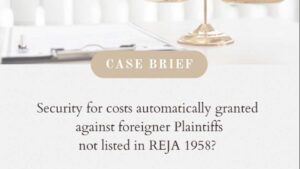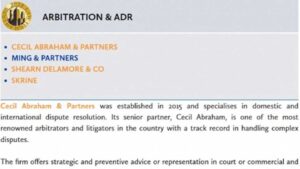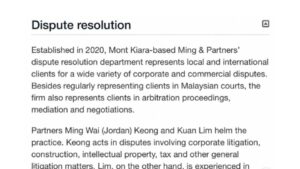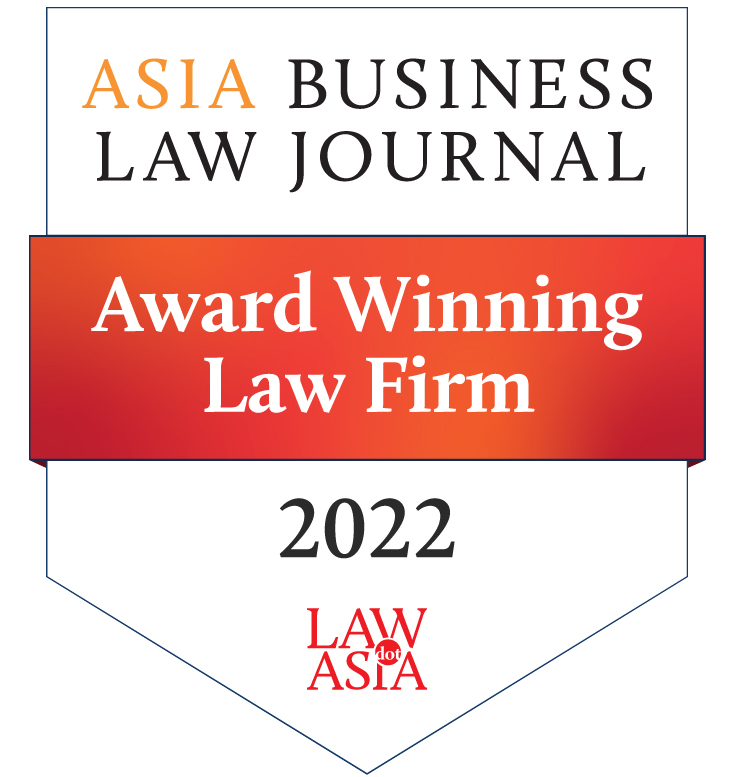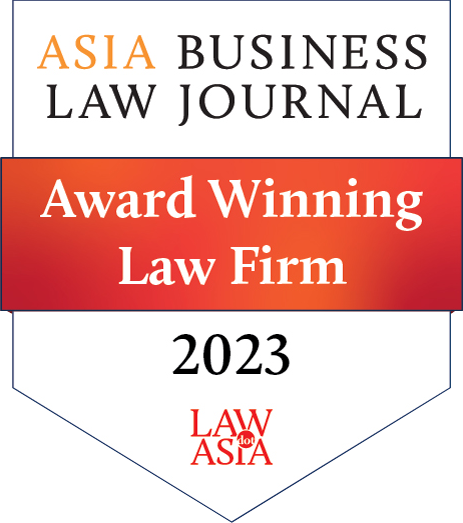
Key Focus
- Section 37 of the Companies Act 2016
- Chew Meu Jong v Lysaght (Malaysia) Sdn Bhd; Liew Swee Mio @ Liew Hoi Foo & Ors (Interveners) [High Court]
- Liew Swee Mio @ Liew Hoi Foo & Anor. v Chew Meu Jong & Anor [Court of Appeal]
Introduction
Section 37 of the Companies Act 2016 (‘Act’) is a new provision incorporated into the companies act of Malaysia, granting power to the Court to amend or alter the company’s constitution, on such terms and conditions as the Court thinks fit, if the Court is satisfied that it is not practicable for the company to alter or amend its constitution by using the procedures set out in the Act or in its constitution.
Save for Section 34 of the Companies Act 1993 (New Zealand), no other similar provisions as Section 37 of the Act are found in the law of the common law countries.
Prior to the determination of Chew Meu Jong v Lysaght (Malaysia) Sdn Bhd; Liew Swee Mio @ Li Hoi Foo & Ors (Interveners) (‘Chew Meu Jong’) by the Malaysian Court, two (2) New Zealand’s cases were decided based on Section 34 of the Companies Act 1993 (New Zealand), namely Shell (Petroleum Mining) Co Ltd v Todd Petroleum Mining Co Ltd (‘Shell’) and Karen Davy and John Dewar Marsh v Grace Natalie Scarrott & Ors (‘Karen Davy’).
Chew Meu Jong
Brief Facts
The shareholding of the Company, Lysaght (Malaysia) Sdn Bhd, is divided into 3 different classes of shares (A, B and C) where different rights are attached to the different classes. Pursuant to the Company’s Constitution, each class of shareholders is entitled to appoint its representative director(s) to the Company. Further, the presence of the respective classes of shareholder(s) and/or their representative director(s) are required to form a quorum for general and/or board meetings.
Issues arose when one of the Class A shareholders sold off its entire Class A shares to the remaining Class A shareholder. After the share sale, concerns and issues were raised by the other classes of shareholders and/or their representative directors on the interpretation of the Constitution, in particular on the issue of quorum for meetings.
The Plaintiff, a Class A representative director, thus initiated the present action under Section 37 of the Act to amend or alter the Constitution, specifically regarding the rights of Class A shareholder only. The other classes of shareholders and/or their representative directors (‘Interveners’) then intervened and opposed the action.
Contentions by Parties
There are different contentions raised by the parties regarding the interpretation of Section 37 of the Act. While the Plaintiff submitted on the interpretation of ‘not practicable’ or ‘impracticability’ as found in the subject provision, the Interveners raised the issues of, amongst others, the applicability of the ‘bona fide’ test derived from Section 36 of the Act.
Finding of the High Court
While deciding on the matter, the Court referred to various authorities including case laws, textbooks as well as dictionary because the phrase ‘not practicable’ is not defined in the Act.
Referring to cases of Karen Davy and Shell (where both the cases were dismissed by the New Zealand Courts), the Court observed that, to quote, “in deciding whether the constitution of the company is to be altered or amended by Court, the New Zealand High Courts looked at the impracticability of the process or procedure of the amendment made by the company and not so much on the intention or conduct of the parties who proposed the amendment”.
By adopting the principle laid down in Karen Davy, the Court decided that the test for Section 37 of the Act is whether the alteration or amendment of the constitution is “not practicable to use the normal process to change the constitution that the Court’s intervention is necessary or justified”. As the Court observed that the issue of ‘bona fide’ does not arise at all in Karen Davy and Shell, the Court found that it was not necessary to deal with the issue on whether the Plaintiff’s application is bona fide for the interest of the Company (during the oral pronouncement of the decision, the Court stated that it was satisfied that the alteration and amendment of the Constitution was made in good faith).
The Court further found that the proposed amendments by the Plaintiff did not cause prejudice to the Company and the application was not made prematurely.
The High Court allowed the Plaintiff’s application to amend or alter the Constitution of the Company.
Unanimous Decision at Court of Appeal
The matter was appealed to the Court of Appeal by the Interveners, where the appeal was heard sometime in May 2021. The Court of Appeal unanimously dismissed the Interveners’ appeal and affirmed the decision of the High Court.
As at the date of publication of this write-up, the written grounds of the Court of Appeal are yet to be released.
Conclusion
As far as the Author is aware, the case of Chew Meu Jong is the first decided case in Malaysia (and probably in other commonwealth jurisdiction) where the Court has exercised its statutory power to amend or alter the constitution or article of association of a company.
The decision of the Courts laid down a clear principal or test for the applicant to comply with before initiating such application. Although Section 37 of the Act provides an alternative route for a party to amend or alter the constitution of the company via Court, it is of the view that such power of the Court could only be invoked for rare and exceptional circumstances. The applicant must satisfy the Court that the proposed amendment to the constitution is not practicable to make by using the procedures set out in the Act or the constitution itself, failing which the party has to resolve such amendment via Section 36 of the Act.
Authored by
Keong Ming Wai, Jordan the Managing Partner of Ming & Partners. Jordan was involved in Chew Meu Jong at the High Court before the establishment of Ming & Partners.

